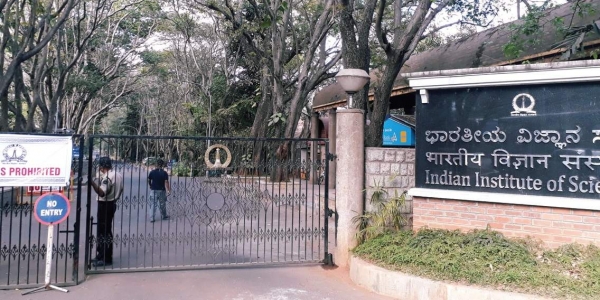The Indian Institute of Science at Bengaluru in Karnataka is the No.1 higher educational institute in the country as per NIRF rankings.

New Delhi :
The Indian Institute of Science (IISc), Bangalore, the first Indian institution to make it to the top 10 in a global ranking, has been ranked at the top in the annual national rankings released by the HRD ministry.
Seven Indian Institutes of Technology (IITs) have also made it to the list of the top 10 educational institutions released under the National Institutional Ranking Framework (NIRF), the other two being Banaras Hindu University (BHU) and Jawaharlal Nehru University (JNU).
The results of the second edition of the domestic ranking were announced by HRD Minister Prakash Javadekar here today.
Unlike last year, this time the ranking was released under five categories — Overall, Colleges, Universities, Management and Engineering.
IISc figured at the top in ‘Overall’ and ‘Universities’ categories.
JNU, which was at third position in the last ranking, has been ranked second this year in ‘Universities’ category.
In the ‘Overall’ ranking, the university, which has been at the centre of controversies for over a year, has been placed at the sixth position.
Last month, IISc was ranked eighth in the Times Higher Education or THE Rankings, 2017 in the “best small universities” category, joining the elite list that includes California Institute of Technology (Caltech) from the US, Ecole Normale Superieure from France and Pohang University of Science and Technology, South Korea.
The NIRF outlines a methodology to rank institutions across the country. The methodology draws from the overall recommendations and broad understanding arrived at by a core committee set up by the ministry, to identify the broad parameters for ranking various universities and institutions.
The parameters broadly cover ‘Teaching, Learning and Resources’, ‘Research and Professional Practices’, ‘Graduation Outcomes’, ‘Outreach and Inclusivity’ and ‘Perception’.
source: http://www.newindianexpress.com / The New Indian Express / Home> Cities> Bengaluru / by PTI / April 03rd, 2017


